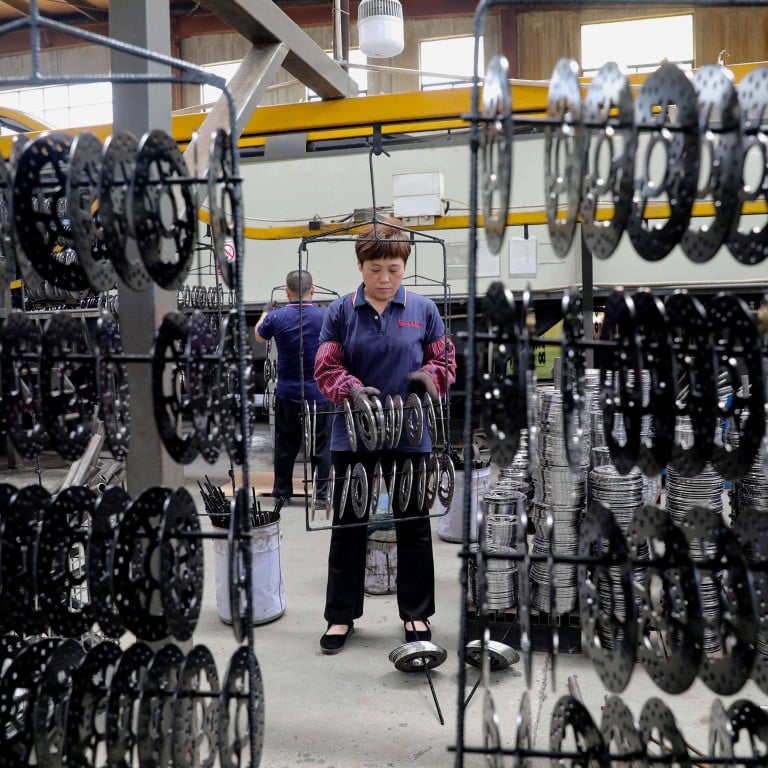
China urgently needs to level playing field, improve fairness for all firms, survey says
- Survey said governance transparency, availability of human resources, demand and supply in markets and intermediary services had deteriorated
Transparency in governance and market demand declined between 2019 and 2022 in mainland China, according to a survey of over 2,000 companies, amid a new push by Beijing to crack down on industry barriers and protectionism.
Respondents to the “China’s Provincial Business Environment Index 2023 Report” said governance transparency, availability of human resources, demand and supply in markets and intermediary services had deteriorated.
The survey of 2,295 mainland China-based companies, conducted by National Economic Research Institute in 2022 and the first quarter of 2023, has previously been released every three years since 2006.
“This shows that there is an urgent need to improve the fairness of market competition. Governments at all levels should treat private and state-owned enterprises, large and small enterprises fairly, and should not favour one over the other,” said the survey published by the Beijing-based think tank on Wednesday.
“Local governments should also not adopt local protection policies to exclude or discriminate against non-local enterprises.”
The survey also cited feedback from some respondents who had dealt with local governments, including officials who did not fulfil contractual agreements and were not engaging with businesses.
This situation is often caused by overinvestment in the past and is also related to weak market demand
They also highlighted a weak job market and demand as key challenges.
“The phenomenon of excessive competition among enterprises is mainly related to overcapacity. In the case of general overcapacity, enterprises have to engage in fierce competition and may even compete by reducing prices regardless of costs to avoid greater losses,” the survey added.
“This situation is often caused by overinvestment in the past and is also related to weak market demand.”
However, respondents also said that they had seen improvement in administrative efficiency, tax burdens on enterprises and infrastructure between 2019 and 2022.
At the time of the survey in 2022, coronavirus prevention policies were cited by more than a quarter of the respondents as the most prominent cause of difficulties.
The central government’s top economic planner, the National Development and Reform Commission (NDRC), last month published a set of guidelines to crack down on favouritism, targeting poor transparency in government tenders.
An unnamed NDRC official said that a cross-department audit in 2023 had found that “illegal acts” such as bid rigging, false claims, collusion between bidders and interference by relevant departments and localities remained prevalent.
“Some unreasonable restrictions and hidden barriers have not yet been completely eliminated,” the NDRC official said in comments released on Monday to explain the new guidelines.
The National Economic Research Institute survey received 89.4 per cent of respondents from the private sector, 6.2 per cent from state-owned or state-controlled companies, and 2.6 per cent were foreign firms and companies from Hong Kong, Macau and Taiwan with operations in mainland China.
Just less than a third of respondents came from the industrial sector, with just over 20 per cent from the agricultural sector, construction and transports and logistics.
Respondents from trade, catering and accommodation, information technology and scientific research and tech services, as well as finance, real estate and leasing, were also included.

